UToledo is Deploying Innovative Tools to Protect Drinking Water
Collaborative research identifies resourceful solutions. Since the 2014 algal bloom crisis in Lake Erie, UToledo has ensured the quality of drinking water for hundreds of thousands in the region through creative approaches embracing technology and microbiology.

Research led by UToledo microbiologist Jason Huntley, Ph.D., identified bacteria that can be used to naturally purify Lake Erie’s water, a new development in fighting harmful algal blooms. Huntley’s team is testing biofilters and specialized bacteria to degrade harmful toxins at lower cost and greater efficiency to water treatment plants.
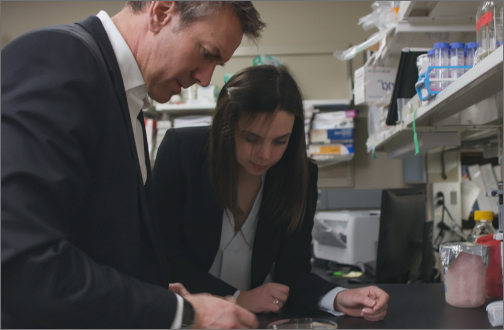
Clinicians may gain powerful new tools to measure microcystin exposure in blood and urine samples thanks to the work of David Kennedy, Ph.D., Dragan Isailovic, Ph.D., and Steven Haller, Ph.D. Their highly accurate new testing method could benefit vulnerable populations around the world.
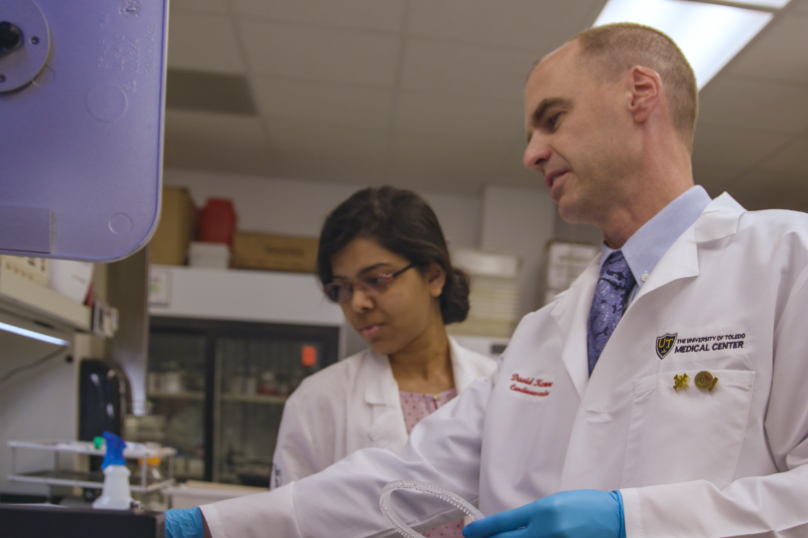
Low-flying drones armed with sensors are able to measure water quality in key areas more efficiently than satellite and boat-based sampling. Research by Richard Becker, Ph.D., demonstrates this new solution for public health officials to monitor targeted areas, such as drinking water inlets and public beaches, at lower cost.
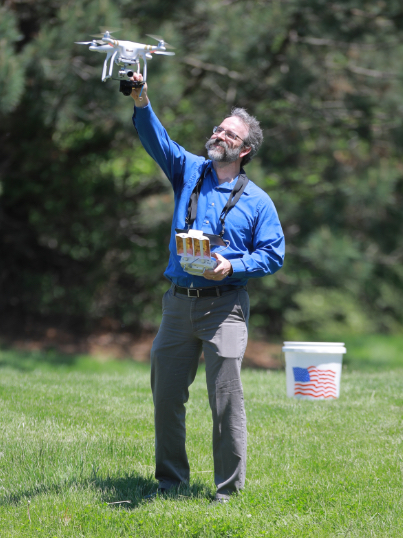
Scientists at UToledo’s Lake Erie Center led by Tom Bridgeman, Ph.D., monitor Lake Erie by boat and by buoy leading an early warning network that provides live data vital in the assessment of harmful algal blooms. Bridgeman leads Ohio’s Harmful Algal Bloom Research Initiative.
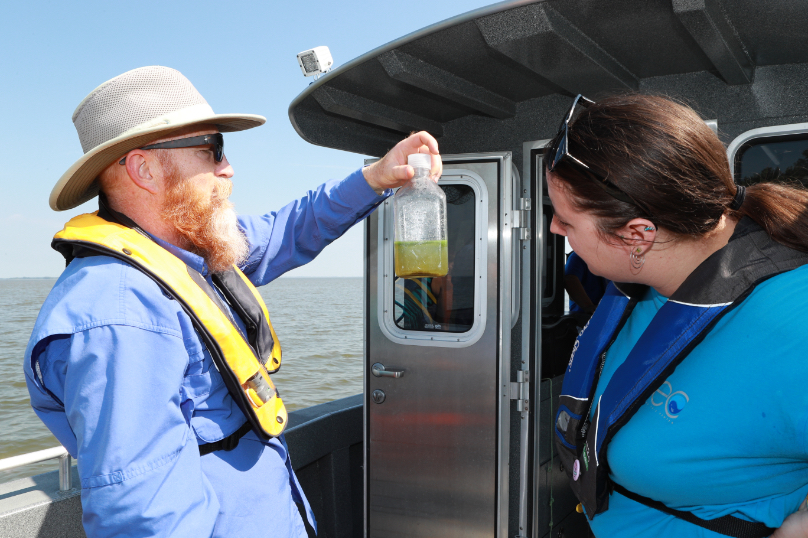
Engineers Adam Schroeder, Ph.D., and Brian Trease, Ph.D., looked to the prehistoric, freshwater paddlefish to design models that could allow scientists to actively screen large amounts of blue-green algae from the water before it’s able to release cyanotoxins.

Law professor Kenneth Kilbert, J.D., leads the Legal Institute of the Great Lakes research center and for nearly two decades has brought together the top experts to address the legal, economic and social issues threatening the largest freshwater ecosystem in the world.
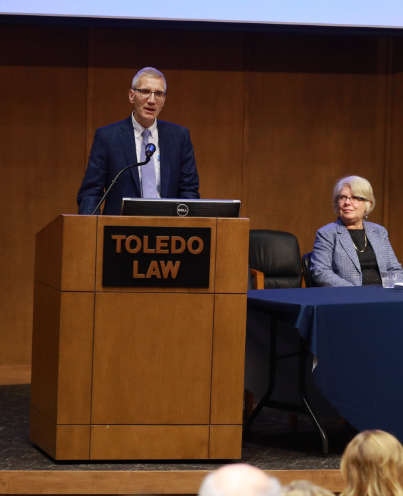
Learn More
- 2018 report for Ohio’s Harmful Algal Bloom Research Initiative highlights UT water quality research
- The Star: Scientists on high alert as green menace threatens Lake Erie
- Great Lakes Now: IJNR Snapshots: Cost, timing, weather and lack of regulation make nutrient management hard for farmers around Lake Erie